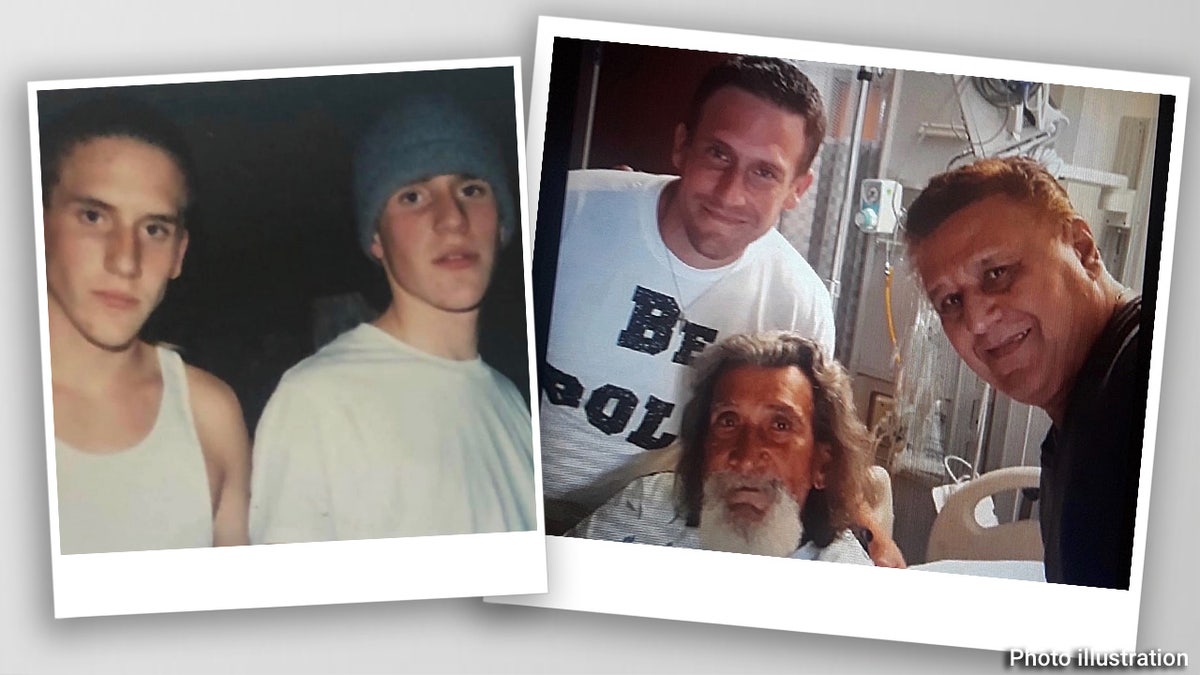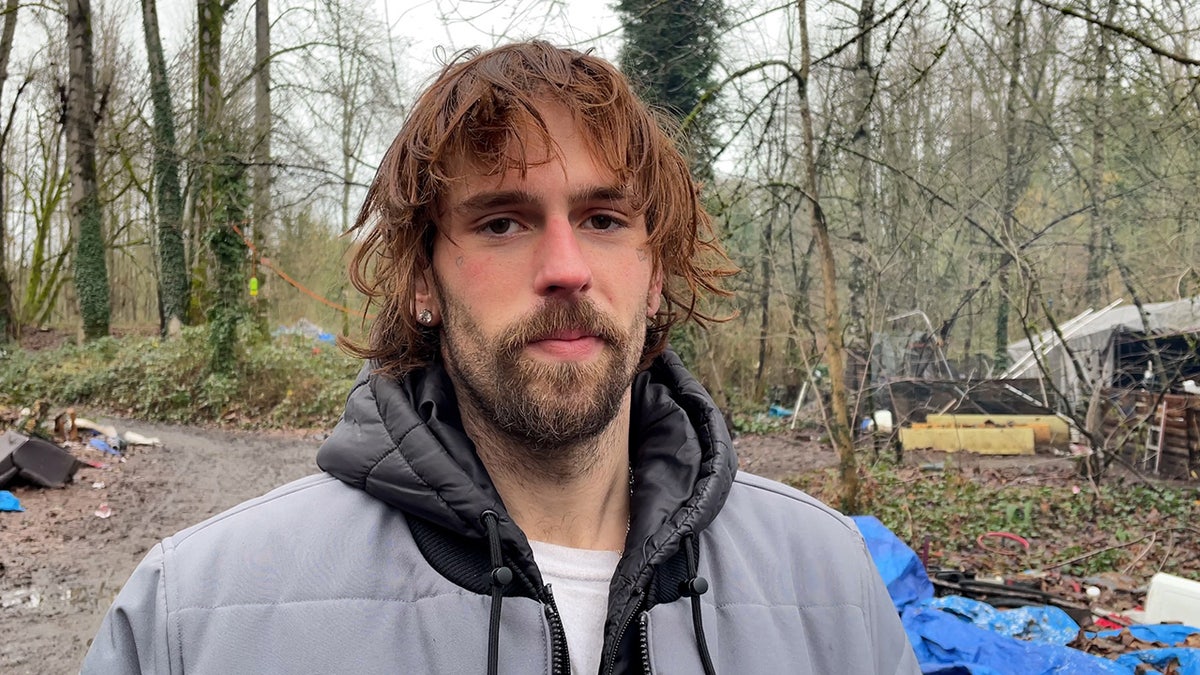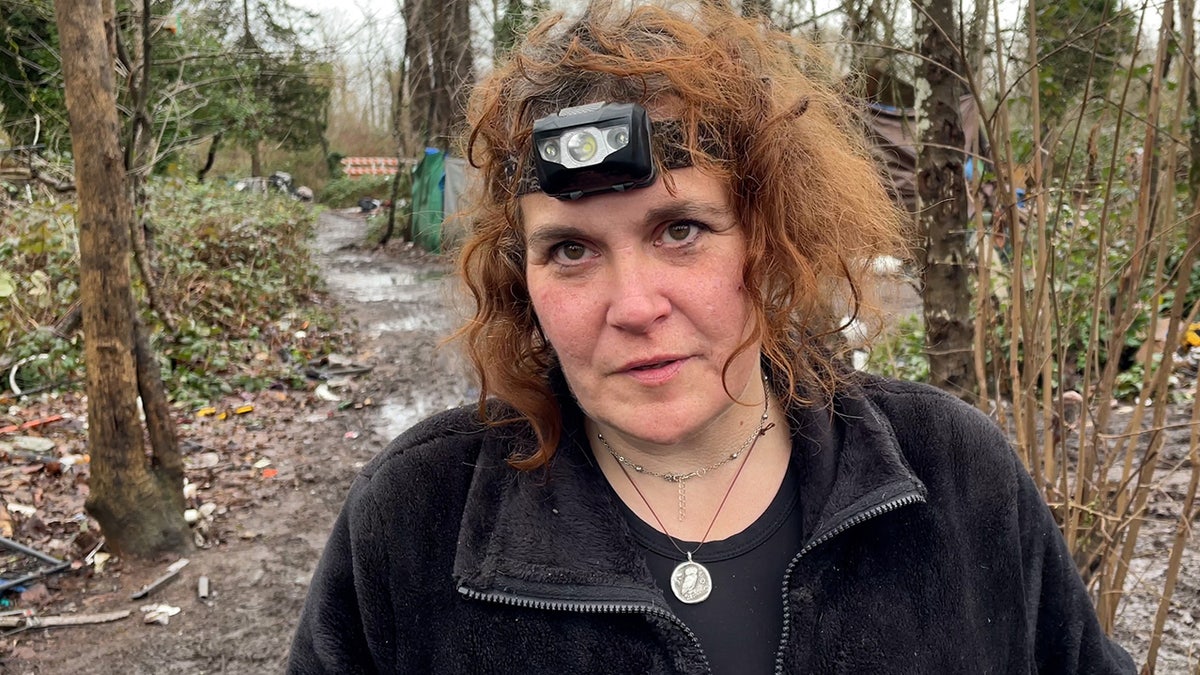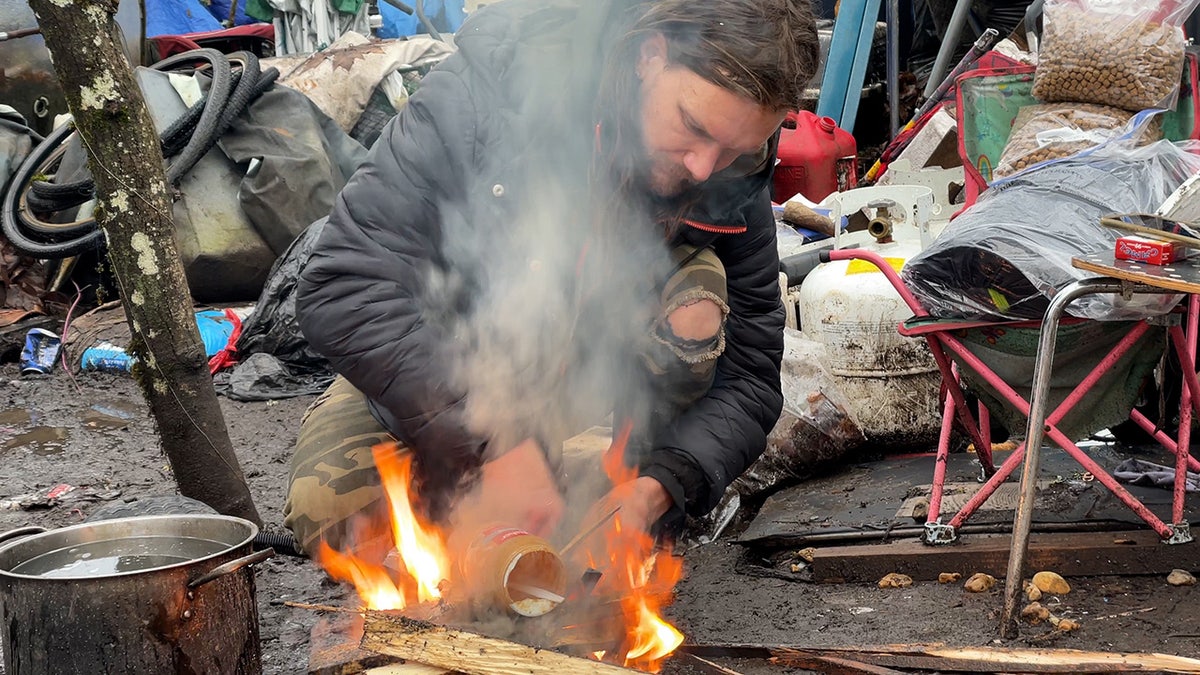
This story is part of a series examining the drug and homeless crises plaguing Oregon. Read part one, part two and part three.
SALEM, Ore. — Matt Maceira remembers people throwing trash out their car windows at him as they drove by. But the insults they hurled hurt more. Worthless. Hopeless. Lost cause.
“Hey low-life,” he recalled one man shouting. “Nobody loves you. Why don’t you kill yourself?”
CRISIS IN THE NORTHWEST: DRUGS LEAVE RURAL AREAS TO ROT IN THE SHADOWS, ‘LIKE PLAYING WHAC-A-MOLE’
“I heard that all the time,” Maceira told Fox News, walking through the woods he used to call home. “Because I [was] homeless, which means I have less value, right?”
“Said God never,” he added sarcastically.
After 27 years in the drug world, Maceira is approaching a decade of sobriety. He travels around the world and his home state, sharing the gospel in hopes of inspiring others to rejoin society. Maceira is also a strong critic of Oregon’s policies around drugs, addiction and homelessness.
Family tradition
Maceira was born into a world of drugs, violence and crime. He started drinking at 8 years old and, and when he was 11, his father introduced him to crank. He was stabbed for the first time that same year.
“I used to call that fun,” he said of his bloody upbringing.

Left, Matt Maceira and his twin brother Rei are pictured during high school. Right, Maceira pictured with his father and uncle less than a year after Maceira got sober. (Photos courtesy Matt Maceira)
His twin brother Rei developed chemical psychosis from prolonged meth use and took his own life shortly before their 24th birthday, Maceira said, sending him deeper into despair and addiction.
But a pastor befriended Maceira, never giving up on him. And, after several more years, Maceira finally turned his back on the only way of living he’d ever known.
“I have a totally new life today,” he said. “God changed my heart.”
Oregon’s homeless population has grown 37.4% from 2020 to 2023, according to data from the U.S. Department of Housing and Urban Development. The state has the second-highest percentage of homeless residents who are unsheltered (64.6%), behind only California (68%).
State and local government spending on housing and other homeless services has also skyrocketed.
Ahead of a forecasted ice storm, Maceira and volunteers from other nonprofits loaded up wagons with sleeping bags, wool socks, water and other gear, and headed into the woods behind Wallace Marine Park, located just across the Willamette River from the Oregon State Capitol. The park holds one of the largest homeless encampments in the entire state.
“I see it solely as a blessing” to return to Wallace Marine Park, Maceira said softly. His bright blue sweatshirt, emblazoned with the words “Hope dealer,” stood out against the gray sky and bare trees.
Some who live there “knew me when I was not necessarily the most friendly or approachable person.” Maceira smiled. “So I get to come back and genuinely love all these folks out here.”
WATCH: INSIDE ONE OF OREGON’S LARGEST HOMELESS CAMPS:
WATCH MORE FOX NEWS DIGITAL ORIGINALS HERE
Many of the people Maceira works with are also formerly homeless, like Aidan, who ran away from home at the age of 11. He spent most of the next 12 years living on the streets or in the woods behind Wallace Marine Park.
“I just got addicted to the streets,” Aidan said. “Drugs, crime, pretty much doing whatever I wanted to do.”
But in October 2019, a month before the birth of his daughter, he had an epiphany.
“I grew up without a dad,” he said. “I didn’t wanna put my daughter through that.”
Now going on five years clean and sober, Aidan works for a medication-assisted addiction treatment facility and often returns to his old home, spreading the gospel and encouraging others to find their way out of the forest.
As Maceira and other volunteers chatted with residents of the encampment, Aidan let 28-year-old Tyler borrow his phone. After a decade of methamphetamine addiction, Tyler called a treatment facility.
“I’m just trying to get out of here and to do what I can to become a citizen of the outside world,” Tyler said after he finished giving the center his information. “To not live out here.”

Tyler, 28, said he has been homeless and addicted to meth for about a decade. On Jan. 12, 2024, an outreach worker helped him call a treatment facility so he can work toward sobriety. (Hannah Ray Lambert/Fox News Digital)
For others, living in the woods is more comfortable than the claustrophobic feeling of being surrounded by four walls.
“I don’t know if I want to be indoors,” said Seven, who has been homeless since 2006, shortly after his mother died. “I’m not used to it.”
Ressa, who was off the streets and in transitional housing for a time, agreed.
“I couldn’t handle the four walls, the limitations and the lack of nature,” she said. “I don’t want to be stuck.”

Ressa, 50, has been homeless for about 10 years. She briefly lived in transitional housing, but said on Jan. 12, 2024, she “couldn’t handle the four walls” after living outdoors for so long. (Hannah Ray Lambert/Fox News Digital)
Asked how society can address homelessness when some individuals prefer living outside, Maceira paused.
“If somebody tells you they like it, they like not bathing, they like not eating … or they are cool with eating food that’s no longer fit for human consumption, drinking creek water,” he said, trailing off. “If somebody tells you that they like any of that, they’re not doing well.”
A 2018 HUD report estimated that about 27% of unsheltered homeless people were “severely mentally ill,” and about 21% suffered from chronic substance abuse. In the Portland area, drug overdoses accounted for nearly 40% of all homeless deaths in 2022. Fentanyl contributed to about 74% of those, according to a recent report from the Multnomah County Health Department.
HOMELESS ENCAMPMENTS REMAIN IN PORTLAND, DESPITE TENT BAN: ‘IT’S BULLS—‘
Addiction and homelessness went “hand in hand” for Maceira. And, while he acknowledged that’s “not everybody’s story,” Maceira is deeply critical of Oregon’s approach to the homeless crisis, which he said often neglects to address underlying causes.
The “housing first” model is popular with those who insist that a lack of affordable housing is at the root of homelessness. It prioritizes giving homeless individuals housing without preconditions like sobriety or addiction treatment.
“[That] doesn’t stop drug addiction” or address mental health needs, Maceira said. “Giving somebody a house doesn’t resolve that.”
Maceira opposes low-barrier shelters “in their entirety” and said a lot of money is being “wasted” on programs that put the homeless out of sight and out of mind.
“Drugs are being sold and used in those places,” he said. “People are dying in those places. I’ve done celebrations of life services for people that have overdosed at low-barrier shelters.”
Maceira has also spoken out in favor of re-criminalizing possession of hard drugs in Oregon, saying lawmakers have an opportunity to “course correct” during their current legislative session.
“Letting people use methamphetamine, fentanyl, and heroin or any other deadly substance is not compassionate,” he said.

A young man tries to keep a fire burning in the rain at Wallace Marine Park in Salem, Oregon. (Hannah Ray Lambert/Fox News Digital)
CLICK HERE TO GET THE FOX NEWS APP
As the group splashed through puddles, the wheels of their carts cutting deep tracks in the mud, one volunteer looked around at all the garbage.
“No matter what we give, this is what happens to it,” he said. But clean socks and water do serve as “ice breakers.”
“And then we’re always offering the hope that there’s a better way,” he said.
Sometimes — like with Tyler — people are ready. Be Bold Street Ministries participated in an event at the park in December with dozens of other nonprofits and churches.
“We had people, same day, off the streets,” Maceira said. “We had a bunch of people say yes to salvation, get plugged into medical services, navigation services and housing services.”
And even though Oregon’s homeless problem shows no signs of subsiding yet, Maceira is optimistic about the future.
“It’s amazing what we get to do because we get to see miracles all week long,” he said.
Ramiro Vargas contributed to the accompanying video.








